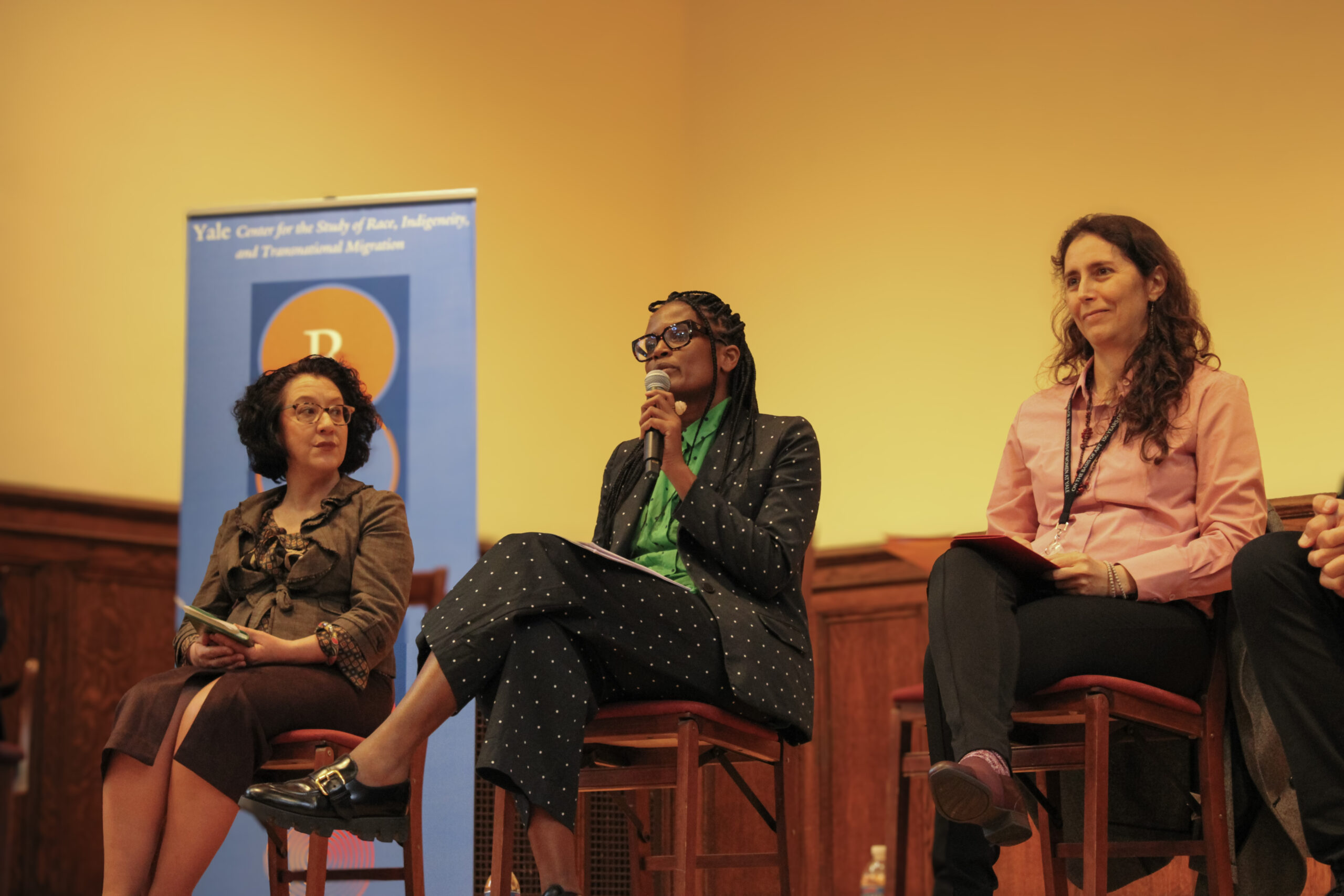Brazilian philosopher Djamila Ribeiro discusses U.S. launch of her book on race and gender
Brazilian philosopher Djamila Ribeiro brings her bestseller book “Where We Stand” to U.S. audiences.

Courtesy of Lexa Pulido Rodriguez/Yale Center for the Study of Race, Indigeneity, and Transnational Migration
When Djamila Ribeiro was growing up in Santos, Brazil, she was surrounded by political activism.
Her father was an activist and one of the founders of the communist movement in Santos, which focused on racial justice in her hometown. As a teenager, her involvement in a Black feminist organization gave her access to women authors for the first time, opening her eyes to female voices. Although her university education was dominated by European male thinkers, Ribeiro remained dedicated to studying women’s perspectives. With the help of her mentors, Ribeiro said she deepened her exploration of feminist theory and influential thinkers like Simone de Beauvoir.
Ribeiro’s background and her passion for studying women in activism would ultimately lead her to write her book, “Where We Stand,” which focuses on themes of race, gender and power in Brazil and around the world.
On Thursday evening, Ribeiro came to Yale to discuss the U.S. release of the book, which was published by Yale University Press this year.
“Racism and sexism are global struggles, and our fight must be transnational,” she told the News in Portuguese.
The book was originally published in Portuguese in 2017 under the title “Lugar de Fala.” Ribeiro joined Yale faculty Giseli Tordin, Gana Ndiaye and Alicia Schmidt Camacho to discuss the U.S. launch of the book.
The book introduces the concept of “place of speech,” exploring how race, gender and power shape who is able to speak and how their words are received. The panel was an important moment for Ribeiro, who reflected on how this work — already a bestseller in Brazil — fits into the U.S. discourse on social justice.
“In 2016, there were many debates on social media, and people were using the concept of ‘place of speech’ incorrectly,” Ribero said. “Since I had already explored this concept during my master’s thesis, I wrote the book to deepen and qualify the debate, to create a genealogy and systematize the concept.”
The discussion also touched on the challenges of translating the term “lugar de fala” for the U.S. audience. Ribeiro said “place of speech” isn’t a widely recognized concept in the United States. At first, Ribeiro and the Yale University Press considered using “Speaking Place” as a title for the translation, but she said “Where We Stand” really resonated with her because “it highlights the personal position or locus we occupy in society.”
She praised the Yale University Press for their attention to detail in maintaining the integrity of her work.
“With the Yale University Press, I felt a level of respect and collaboration I’m not always used to,” she told the News in Portuguese.
Ribeiro’s work draws from Black feminist thought, connecting thinkers such as Simone de Beauvoir, Lélia Gonzalez and Audre Lorde to examine how Black women have been silenced or punished for speaking out.
For many students in attendance, Ribeiro’s presence at Yale held personal significance. Vitória Bezerra Nunes ’28, expressed her pride.
“It was an honor to welcome Ribeiro to Yale,” Nunes said. “As a Black woman from the periphery of Rio de Janeiro, it was incredibly empowering to see someone who represents me in such an important space.”
Another student, Larissa Garcez ’28, was inspired by Ribeiro’s focus on how to bring marginalized people into prestigious institutions.
Garcez said that one of the most important things she’ll take away from the panel is “Ribeiro’s insight on helping marginalized people access spaces like Yale.”
“Coming from a small town in Brazil, this resonated with me. I’m motivated to help others from my community reach universities like this one,” Garcez said.
As her work gains recognition in the United States, Ribeiro said she is optimistic about its global impact.
“We’ve already impacted the curriculum in public schools and universities [in Brazil]. It was important to break this invisibility,” she said. “I feel the impact because the books have become bestsellers, reaching a broader audience, the people — I’ve always wanted to break out of the academic bubble.”
As the conversation around race and gender continues to evolve, Ribeiro encourages readers to engage with the ideas presented in “Where We Stand.” Reflecting on the difficulties of internationalizing her work, Ribeiro acknowledged the challenges in the U.S. market.
“Only about three percent of books here are translated each year,” Ribeiro said at the event. “I’d love to see more international diversity of authors here. My collection has been published in Argentina and France, but the U.S. market is much harder … despite ‘Where We Stand’ being published in Brazil in 2017 it only now reached U.S. audiences … how did it take so long?”
Despite these challenges, Ribeiro remains hopeful that the U.S. release of “Where We Stand” will contribute to the growing global conversation on race, gender and power.
She added that she hopes the dialogue, critique and debate will flourish and she encourages everyone to read her book, as these exchanges are crucial to moving forward.
Ribeiro is currently a professor at New York University, where she teaches the graduate seminar “Feminisms from the South.”







